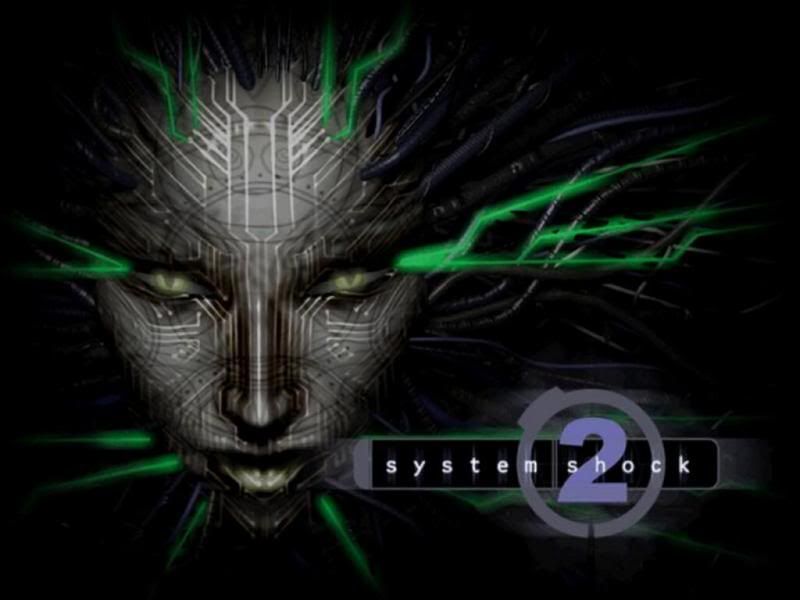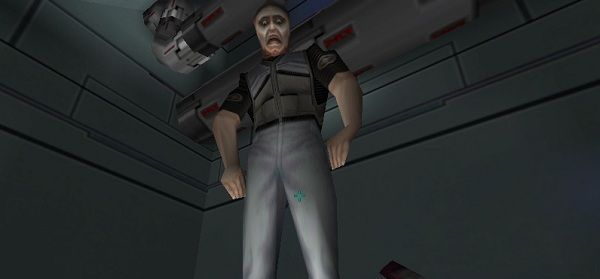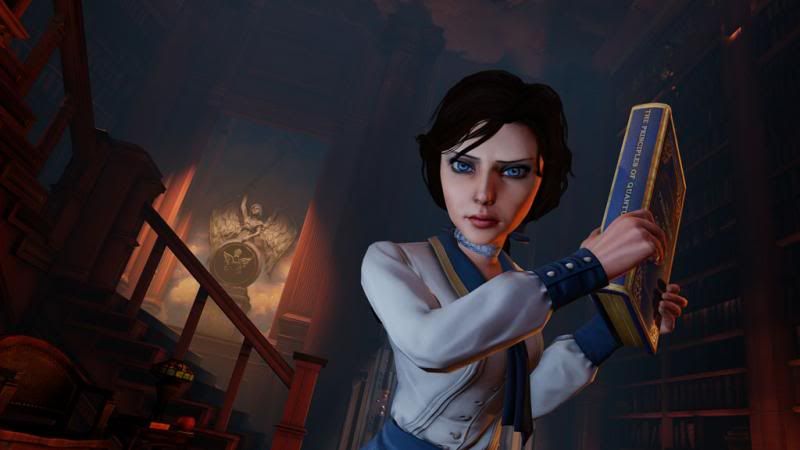Some may consider it a bit of a cheat for me to go over a game I’ve discussed previously. However, a discussion of body horror in video games as part of a Halloween theme is not the same as a full-blown review. And since this game is now available on Steam, I figured now would be a good time to give it the full treatment. Let’s get right into it.

The Tri-Optimum Corporation, late of the original System Shock, has backed the world’s first faster-than-light drive, installed on the science vessel Von Braun. Tethered to the military cruiser Rickenbacher, this historic trip takes the crew of scientists and pioneers to the distant system of Tau Ceti V. When your character awakens, it’s clear that the trip has not gone very well. The Von Braun has holes in it, the AI has gone a little nutty, and the crew? Well… most of them ask you to kill them as they slam your face with a length of pipe.
Like the original System Shock, the setting pits the player, effectively alone, against sci-fi corridors full of active threats. However, it quickly becomes apparent that there are more layers to this game, and I’m not just talking about the multiple decks of the Von Braun. While the malevolent AI SHODAN was the sole antagonist of the first game, it doesn’t take long for a voice other than the Von Braun‘s computer XERXES begins to taunt the player. The game is full of reveals and changes in plot and setting that are well-paced, thanks to the layout of the starships and the ways in which the player upgrades their character.

They tell you to run. They beg you to kill them. They’re very effective creatures, and they’re just the beginning.
This is a true RPG with shooter mechanics, as opposed to shooters with RPG elements like BioShock or Deus Ex: Human Revolution. This isn’t to take anything away from either of those games, as they’re both excellent. However, the focus of more modern games is on the shooting as opposed to character construction. System Shock 2‘s melee has the Half-Life feel in that you can just slam the attack button until whatever is in front of you crumbles. Shooting is better, but since ammunition is very scarce, you may not be doing it as much as you do in other games. You need to rely on other skills, like hacking, weapon maintenance, and possibly psionic powers in order to not end up like those poor hybrids.
In addition to its well-balanced and thought-provoking character system, System Shock 2 conveys atmosphere extremely well. Sound design especially stands out, from the pained groans of the hybrids to the skittering noise of the arachnids to the chittering of the creepy worms. In terms of overall creepiness, the cake is probably taken by the cyborg midwifes, while the ramblers really shocked me into nearly crapping my pants with their speed and desire to swallow my face in those really disgusting tooth-ringed maws of theirs. Yeesh. You see one of those lumpy sons of bitches, you’re gonna have a bad time.

… Yeah. This game is creepy.
The dated nature of the graphics can undercut the tension somewhat, but there are plenty of mods out there to help with that aspect. The nature of the engine can also get in the way of your enjoyment. I’ve heard of people getting frustrated when they spent all of the cyber modules on their Endurance and Heavy Weapons stats only to realize they needed something else entirely to finish the game. As much as the game does not railroad you into certain builds, and allows you to construct your character any way you like, there are “optimal” builds that will make the game less challenging. It’s not exactly a drawback for me, but I know it may turn others away, and therefore bears mentioning.
Stuff I Liked: The atmosphere of the game is super creepy and the level design is very well done. The setting has plenty of depth and background. The ability to switch around your ammo as the situation demands is a neat idea.
Stuff I Didn’t Like: Most of my complaints can be chalked up to the age of the game. As solid as it is, it’s not as smooth as some modern titles. But they’re all minor quibbles.
Stuff I Loved: The Polito thing and everything after, full stop. The necessity of managing both inventory and stats and nanites (cash) give it an entire layer of challenge that has nothing do with combat.I also loved the open-endedness of the game’s RPG system, and the replayability promised by the idea of different builds. I hear Psi-heavy builds are fun and I’m curious to try one out.
Bottom Line: Like the original Deus Ex, System Shock 2 has appeal beyond nostalgia. The systems of the game are rock-solid despite the passage of time, and it still is both enjoyable and challenging to play. The story feels decent in its construction and the layout of the levels means things are well-paced. Regardless of whether you’re new to the idea of sci-fi RPG shooters or you have fond memories of games like this, System Shock 2 now being available on Steam means you have no excuse not to play it. So go do that.



